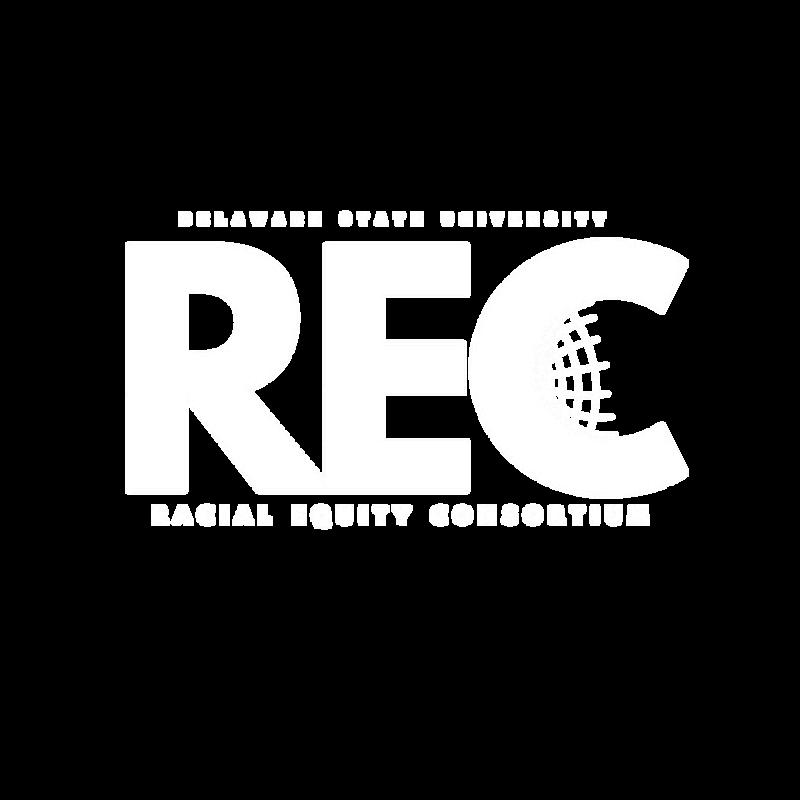
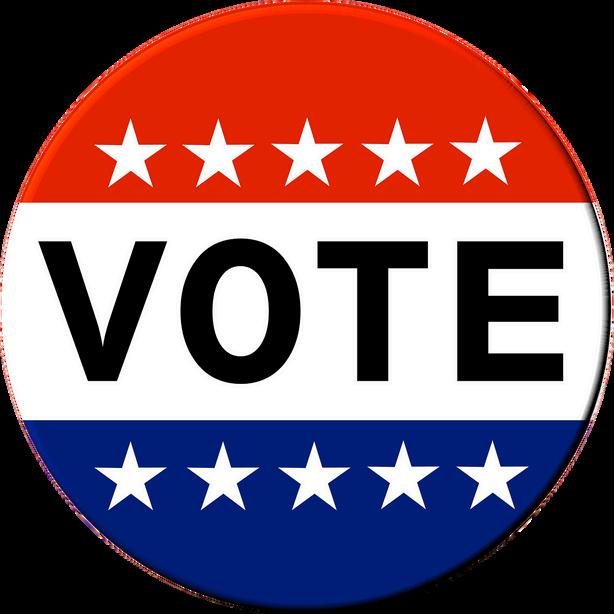
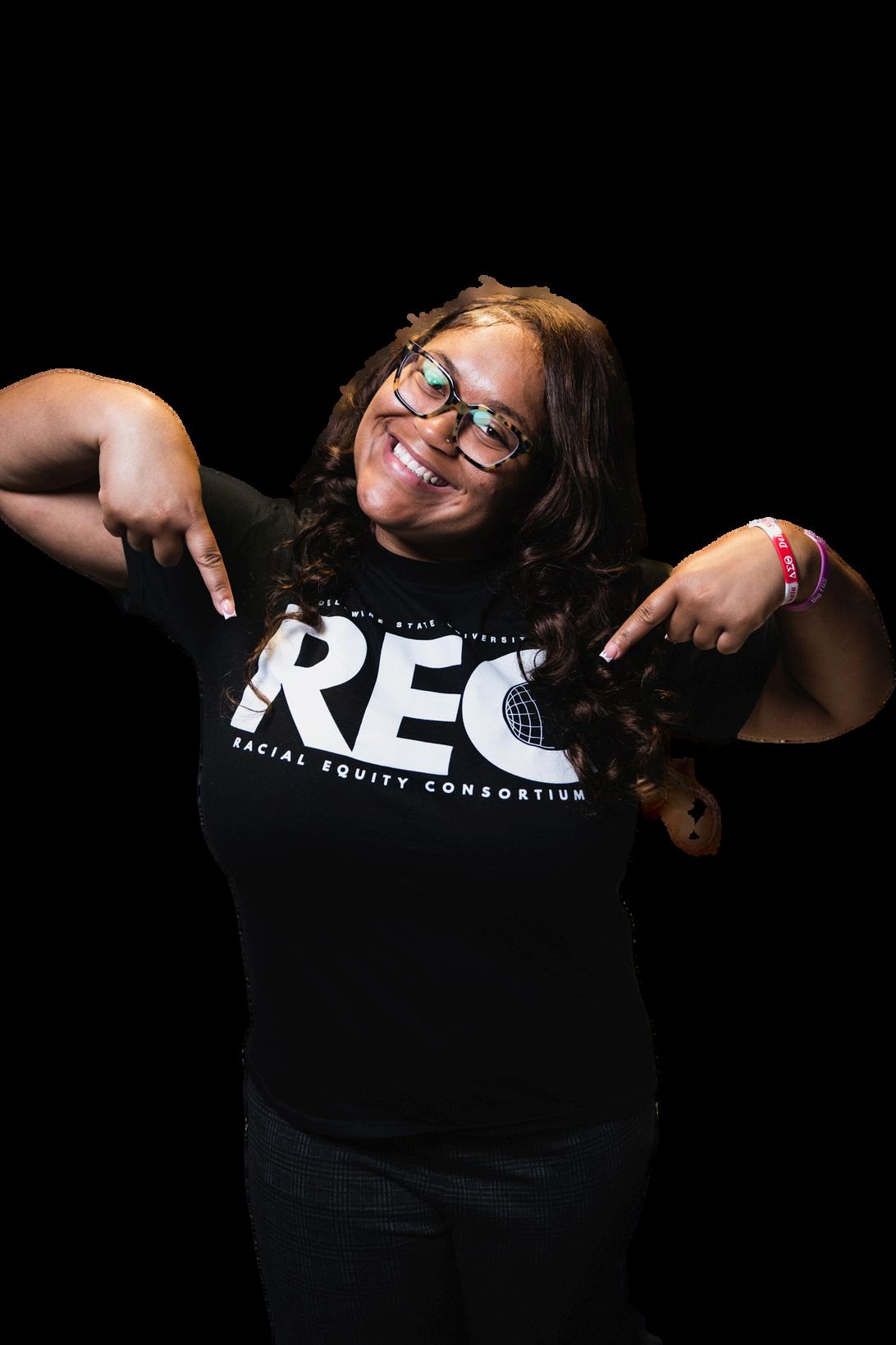

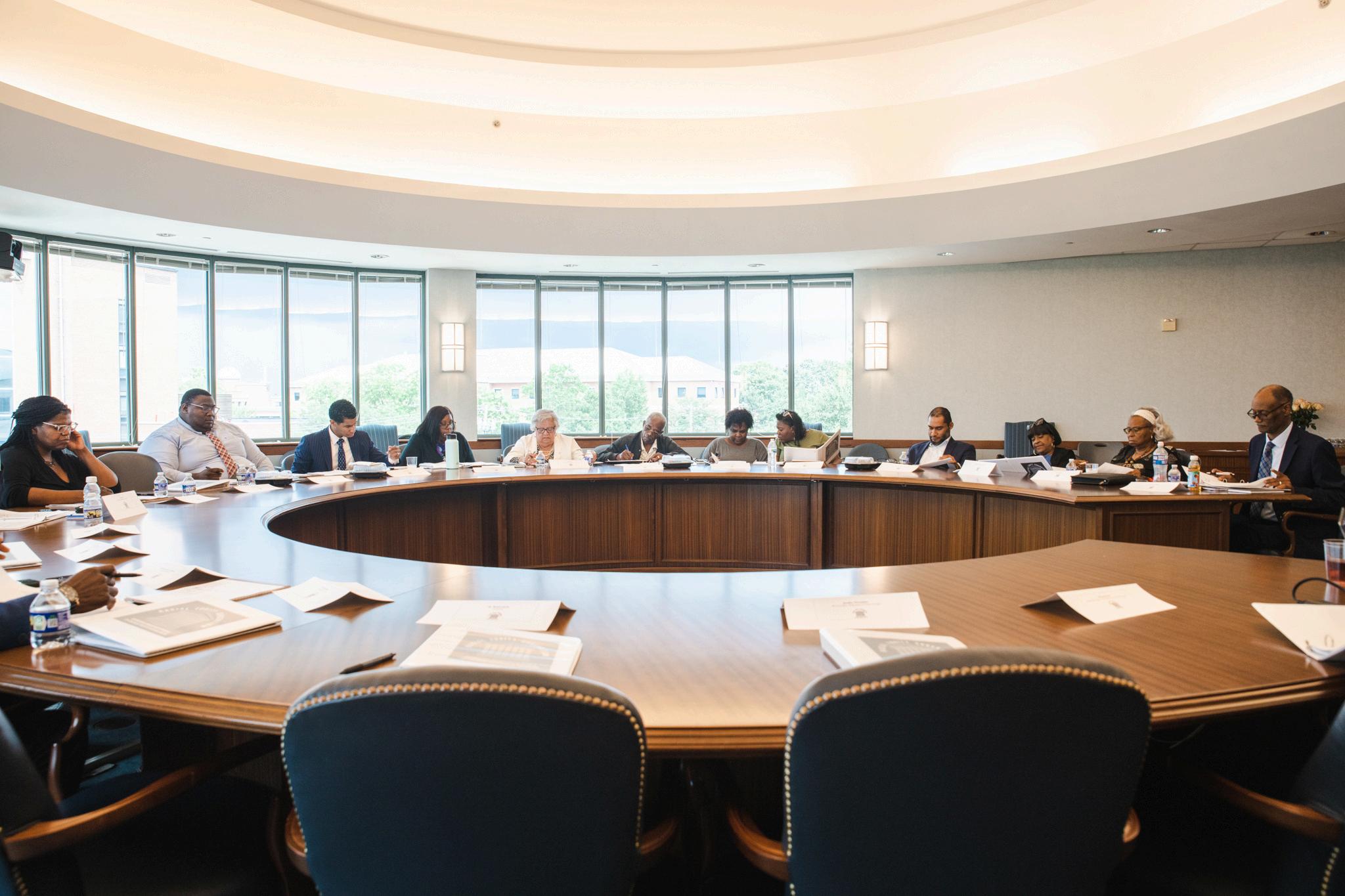
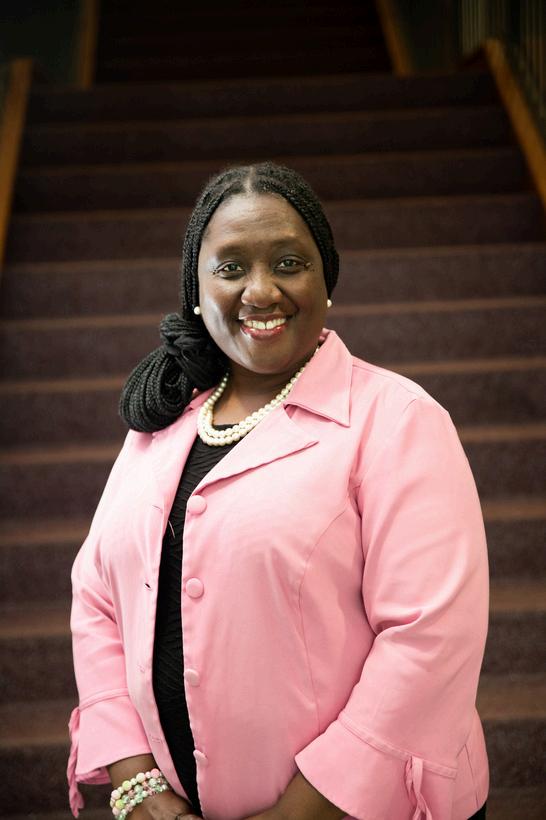







n addition to the changing temperatures and the vibrant fall colors, October is my birthday month. So, October has always been one of my favorite times of the year. Other reasons why I love October is that October is Breast Cancer and Domestic Violence Awareness Months. These recognitions are important because they raise public awareness about these serious issues by encouraging early detection, providing support for survivors, and breaking the stigma surrounding both topics. During the month of October, we hope that the educational programs will lead to better access to treatment and resources for those affected while promoting preventative measures and societal change
For breast cancer, early detection is key Regular screenings like mammograms can significantly improve the chances of successful treatment by identifying cancer early on Likewise, we must recognize the signs and symptoms of domestic violence We can help challenge the stigma associated with breast cancer and domestic violence by openly discussing these issues, thereby creating a more supportive environment for those affected.
This year, October is also the final month before the general election. In the primary election, less than a quarter of registered voters in Delaware participated in their constitutional right to vote. Only 22.41% of eligible voters voted. Everyone needs to vote. Today, most American citizens over the age of 18 are entitled to vote in federal and state elections, but voting was not always a right for all Americans Every vote cast is a testament to the struggles of those who came before us, a tribute to their sacrifices, and a pledge to uphold the principles of democracy and justice We are honored to have Rev Dr John G Moore, Pastor, Dover Christian Church to be a guest contributor to talk about the importance of voting
Remember: voting is the voice of the people Use your right Exert your power VOTE!!
Best regards,

Ofosu
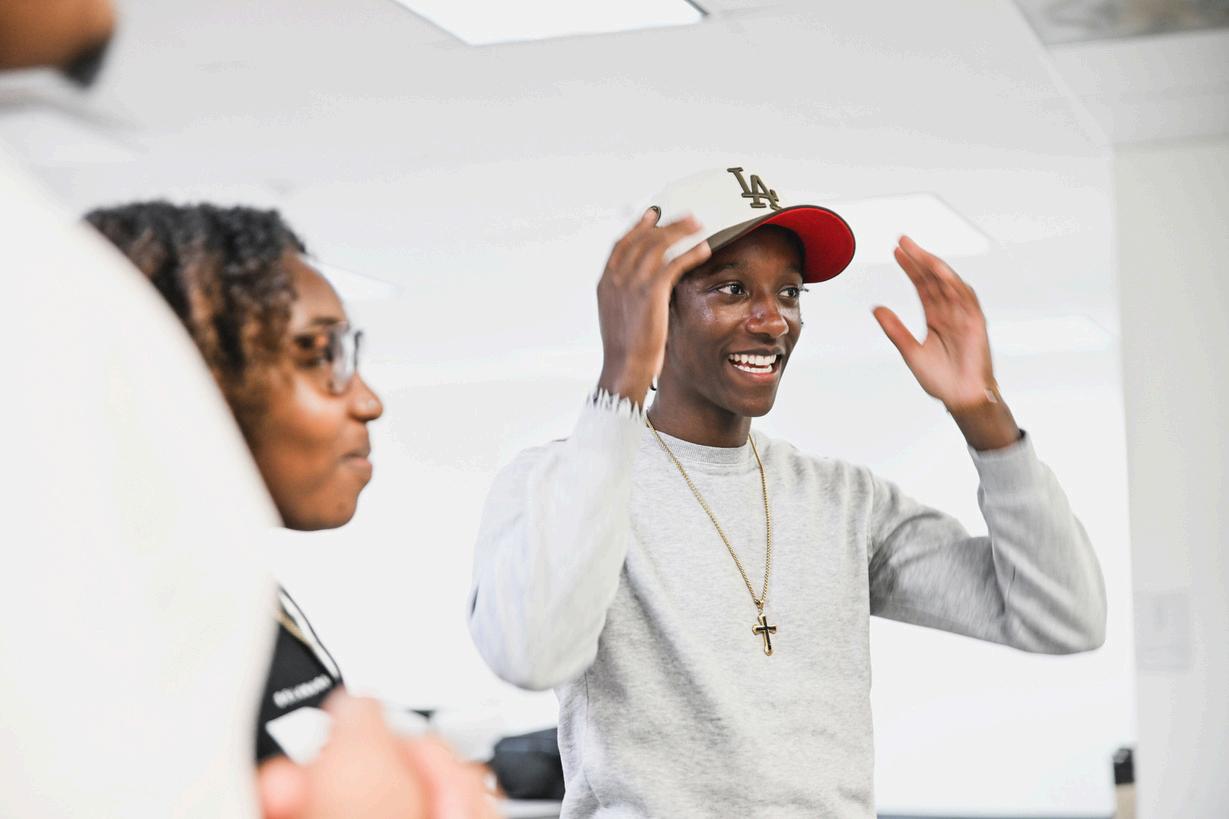
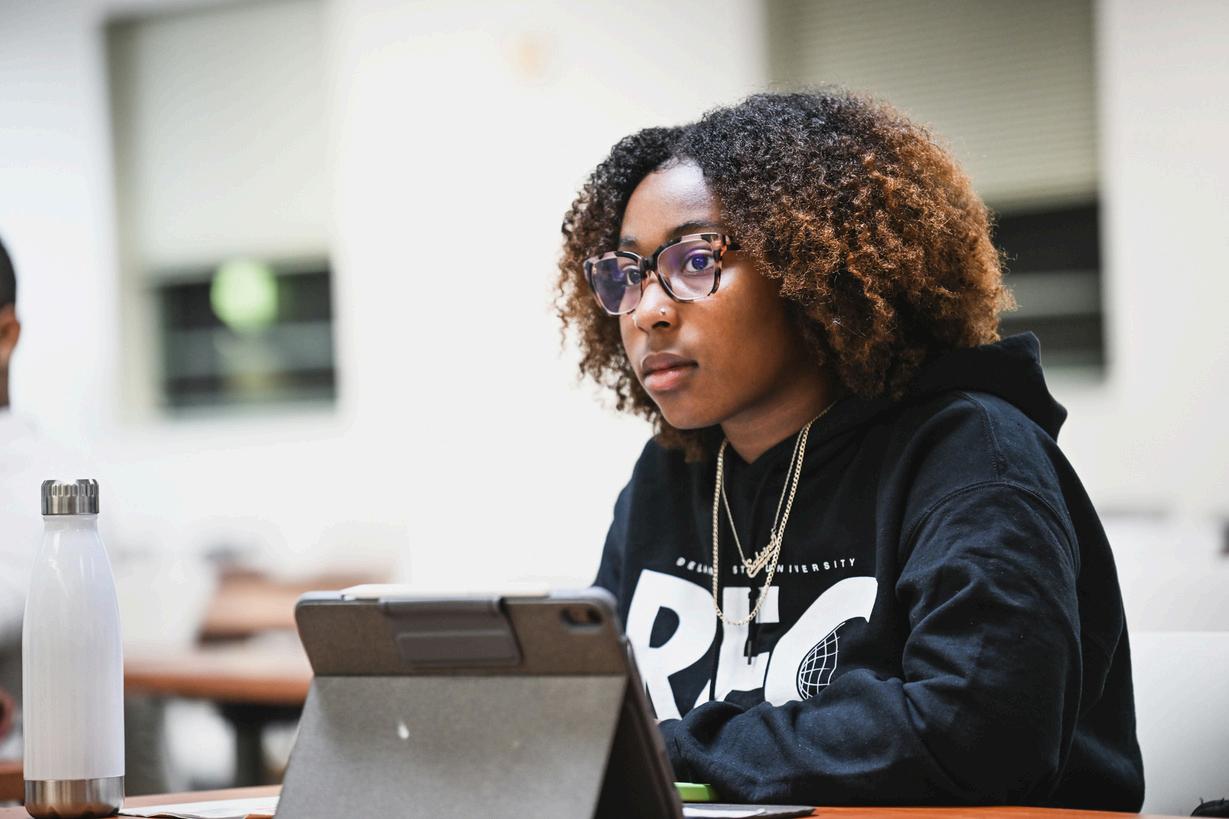
WHY VOTE?
As I reflect on the history of America, one of the great challenges I think of is the many people who struggled, suffered, fought and died for our right to vote. And as we look at the climate in America today, we must not sit back and hope and pray for change, our ancestors expect each and every one of us to do our civic duty by exercising our right to vote. Why is this important? I would simply say that if you want better schools for our children, better programs for our seniors and the economically challenged, better healthcare for all people, better housing and wages for all people, then you better make sure that your voice is heard at the ballot box. And so, as I look at the urgency of this crucial moment in our nation, I think of four words that serve as an acronym for VOTE. These words are “Values, Opportunity, Triumph and Equity”. From the perspective of “Values”, we value people who struggled for civil rights, women’s suffrage and the ideals of justice for all those diverse voices are essential for our nation’s moral health and community vitality for freedom needs unified affirmation. From the perspective of “Opportunity”, when you vote you have the opportunity to eliminate any anxiety that the federal government could negatively impact about our basic rights. From the perspective of “Triumph”, when you vote you triumph by becoming the change that you want to see and eliminate unfair practices by getting rid of unfair people. From the perspectives of “Equity”, when you vote you create equity in society because equal representation is not a red or blue issue it is a way to ensure every American has an equal say about who leads our country. You create equity because the popular vote empowers the individual voter, no matter where that voter lives, and forces our politicians to consider the needs of their whole constituency, not just the few. Yes, it is through the power of voting we can stand on those principals found in the Declaration of Independence that states, “We hold these truths to be self-evident, that all men are created equal, that they are endowed by their Creator with certain unalienable Rights, that among these are Life, Liberty and the pursuit of Happiness.” So, continue to celebrate our history and our ancestors who paved the way for us and justified that as long as you live in this land you are part of American history. And one of the best ways you can commemorate the sacrifices of so many past and present heroes is to get to the Ballot Box on NOVEMBER 5, 2024 and let your voice be heard and your vote count.

Rev. Dr. John G. Moore, Sr. Senior Pastor, Dover Christian Church
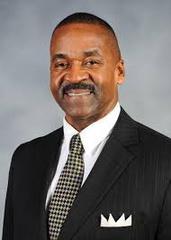

HOWARD HS TEACHER TEACHES FINANCIAL FREEDOM TO DELAWARE STUDENTS!

During the week of Juneteenth, Delaware witnessed a tribute to African American history unlike any before. Jamai Robinson, President of Howard High School of Technology’s Academy of Finance, initiated the Young Financial Leaders Camp.
“I created this camp to enhance the financial knowledge and economic skills of our young financial leaders,” said Robinson. “We aim to promote cross-sector collaboration among financial institutions, community-based organizations, mental health providers, and policymakers to address the intersectionality of financial literacy and mental health challenges.”
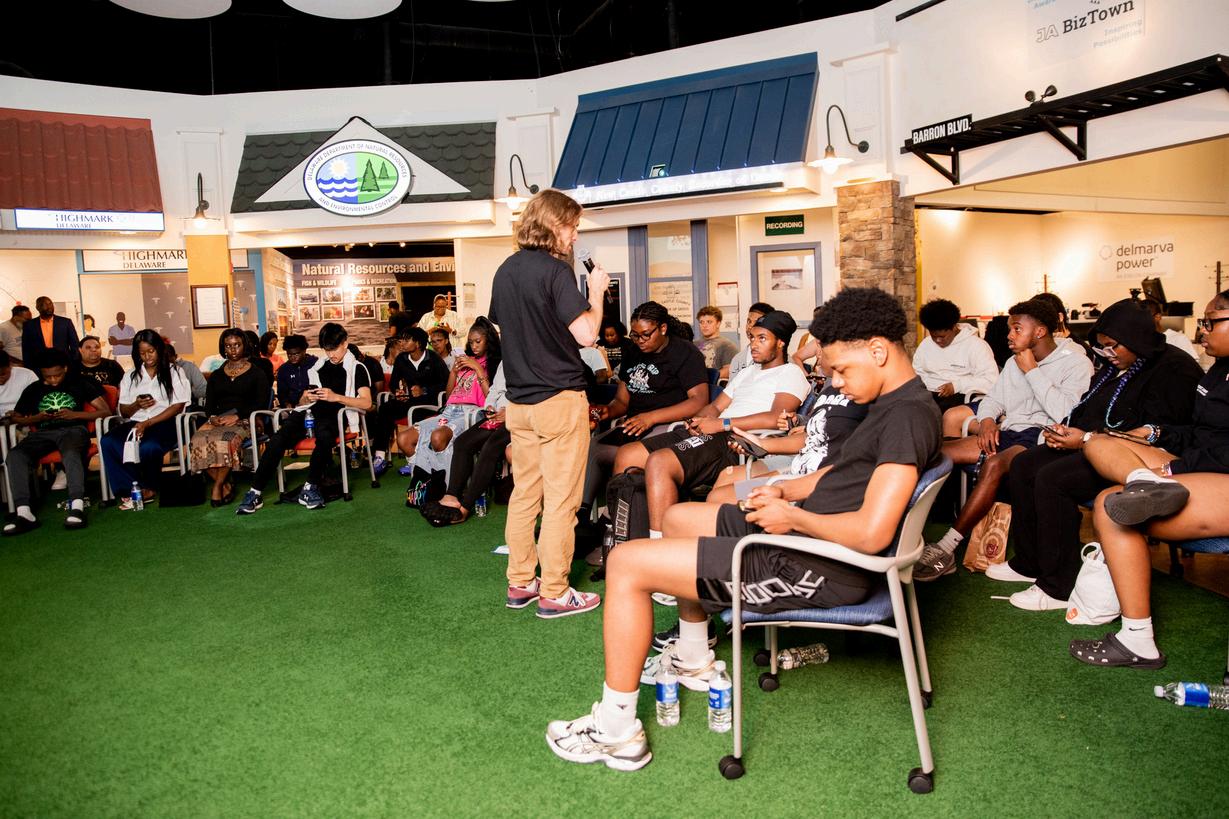
Forty students participated in the camp hosted by the Financial Manifest Foundation in collaboration with Junior Achievement’s Biztown in Wilmington, Delaware. Throughout the event, various professionals generously contributed their time, expertise, and resources to mentor the students. Notable contributors included Daniel Washington from the Black Wall Street Company, Marcus Henry (NCC Executive runner), Armani Coleman from One Village Alliance, Rikeem Wilburn of Keems Cuisine, Ivan Thomas from DETV, Lindsey Thompson from Harpe and Hare, Markevis Gideon from NERDiT NOW, Kasey Rhone from the Tulsa Historical Society and Museum, Gary Taylor from Affluent Mortgage Firm, Crystals Soul Food, Ashley Christopher from HBCU Week, Renicia Cordero from Christiana Care, Jamai Johnson (Caterer), the Delaware Blue Coats, and the Monday Club.
Throughout the week, students engaged in activities focusing on budgeting, speed networking, assessing their entrepreneurial potential, understanding the power of credit, and recreated the spirit of Tulsa, Oklahoma’s Black Wall Street.
The camp is scheduled to return during the week of June 16, 2025, with potential plans to expand to two weeks and accommodate two different cohorts.
The Young Financial Leaders Camp is poised to leave an indelible mark, shaping a future where financial literacy and leadership thrive among Delaware's youth.
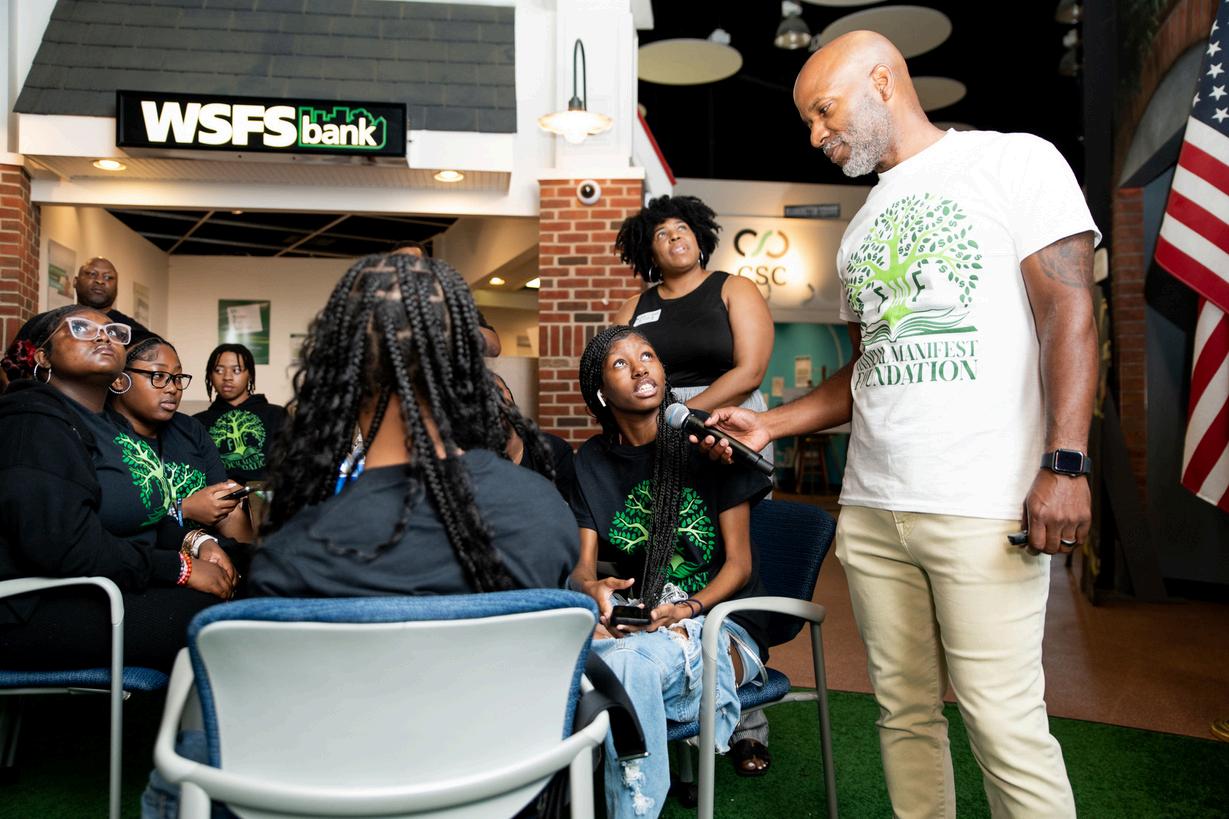

MON 9/16
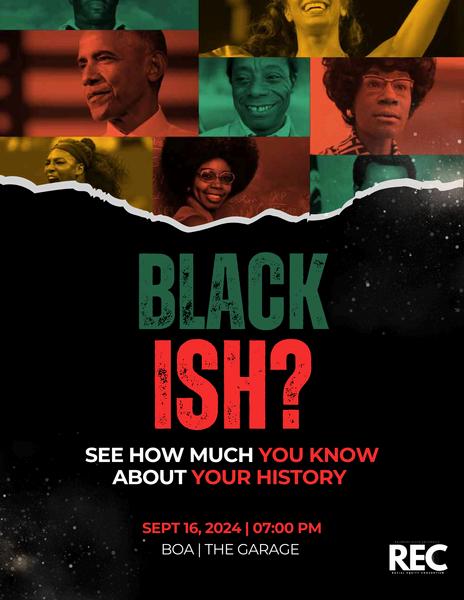
“BLACKISH? Trivia” THE GARAGE 7P
TUE 9/17
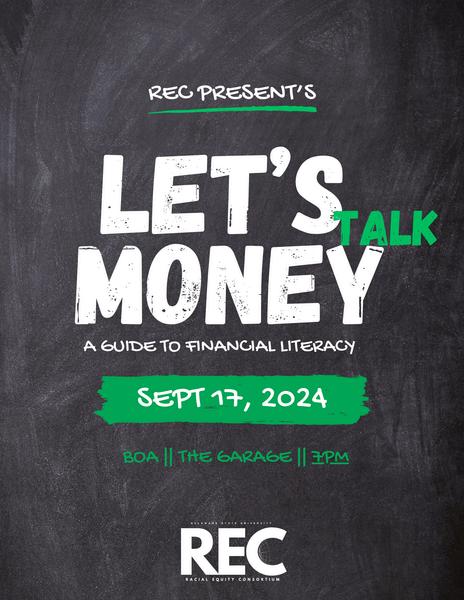
“LET’S TALK MONEY” THE GARAGE 7P
WED 9/18
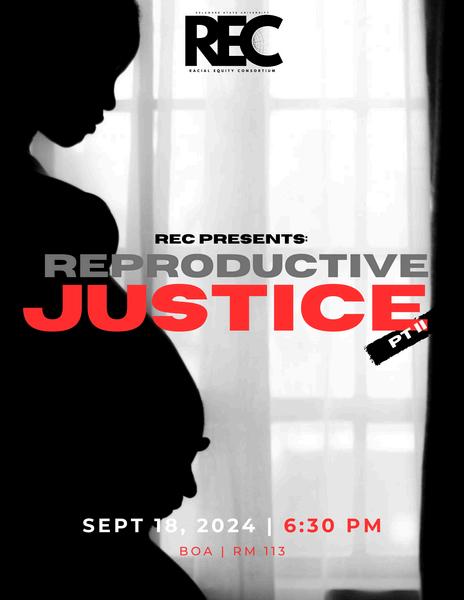
“REPRODUCTIVE JUSTICE” BOA 113 6:30P
“BLACK 2 BUSINESS” RM 113 6:30P THE RACIAL EQUITY CONSORTIUM PRESENTS...
TUE 9/17
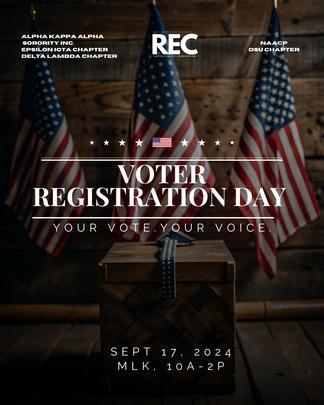
“voter Registration Day” MLK 10a-2p
THU9/19



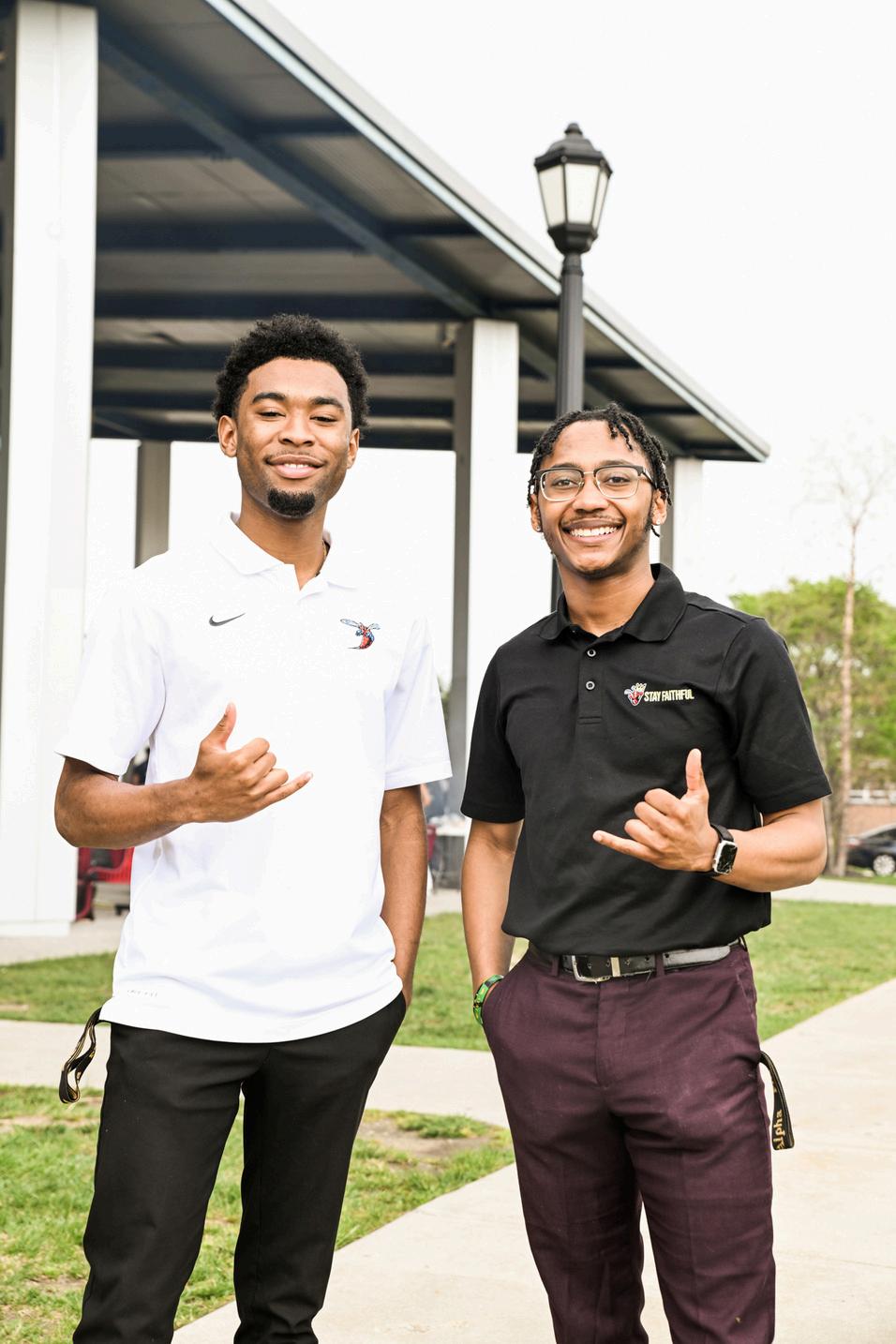
To kick off the semester, The Racial Equity Consortium (REC) hosted "REC Week," a dynamic five-event series focused on fostering awareness and dialogue around crucial topics in our campus and community. Each day offered unique opportunities for students to engage and learn, promoting a culture of inclusivity and empowerment.
The week began with an interactive trivia night titled "Blackish?" designed to educate students about African American history in a fun and engaging way. Participants tested their knowledge while discovering the rich cultural contributions of the Black community, emphasizing the importance of understanding this vital part of our shared history.
On Tuesday, REC hosted two impactful events. The first was a Voter Registration Rally, which aimed to ensure students were informed about their registration status and the voting process. This initiative underscored the importance of civic engagement, particularly among young voters.
The second event of the day, "Let's Talk Money," addressed financial literacy, highlighting essential skills for securing one's financial future. This session provided valuable resources and practical tips for managing finances, empowering students to take charge of their economic well-being.
Midweek, REC brought back the highly anticipated event "Reproductive Justice," which focused on the challenges surrounding Black maternal health. This discussion aimed to raise awareness about the disparities faced by Black women in healthcare, fostering a community dialogue on this critical issue.
Thursday: Panel Discussion – "Black to Business"
The week concluded with a thought-provoking panel discussion titled "Black to Business." Attendees heard from three prominent local minority entrepreneurs who shared their success stories and lessons learned along the way. This event not only celebrated entrepreneurial spirit but also provided insights into overcoming obstacles in the business world.
Through these engaging events, REC Week successfully highlighted the importance of racial equity, community engagement, and education. By fostering dialogue and promoting awareness, the Racial Equity Consortium is paving the way for a more inclusive campus culture.

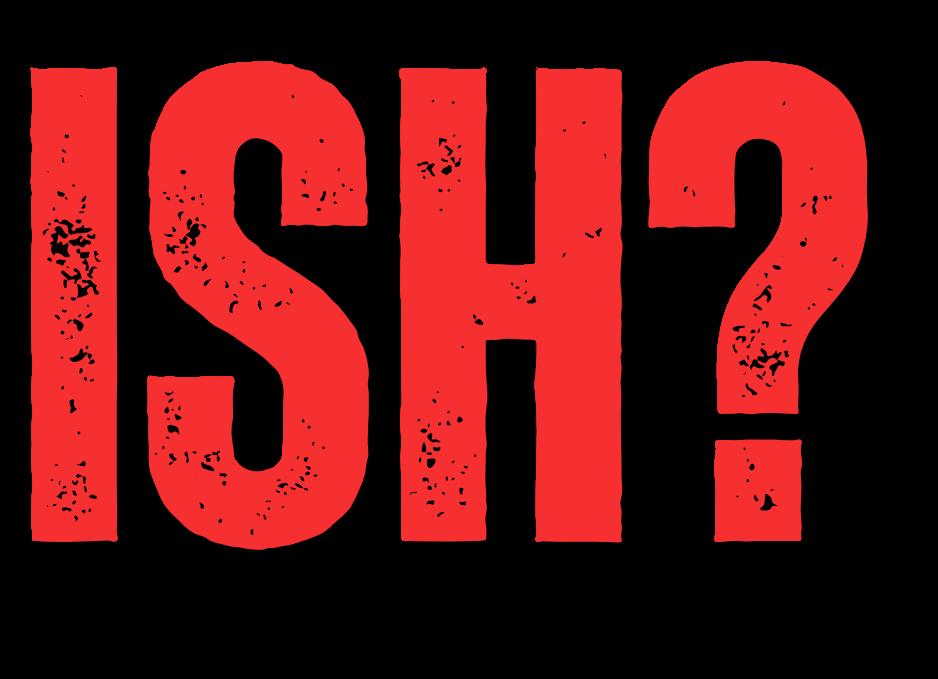
To kick off REC Week, the Racial Equity Consortium hosted an engaging trivia night titled "Blackish?" This interactive event aimed to educate students about African American history while fostering a sense of community and fun.
Participants gathered to test their knowledge through a series of thoughtprovoking questions that spanned various topics, including influential figures, cultural milestones, and significant historical events. The trivia format not only made learning enjoyable but also encouraged friendly competition among attendees.
"Blackish?" served as a platform for participants to deepen their understanding of the rich cultural contributions of the Black community. By exploring key moments in history, students gained insights into the struggles and triumphs that have shaped African American identity. This event emphasized the importance of knowing our collective history, fostering awareness and appreciation for the ongoing journey toward racial equity.
As the night unfolded, laughter and camaraderie filled the room, creating a vibrant atmosphere that highlighted the significance of cultural education. The Racial Equity Consortium’s trivia night successfully ignited conversations about history, heritage, and the importance of community engagement.
In a world where understanding diverse perspectives is crucial, events like "Blackish?" play a vital role in promoting inclusivity and awareness. The success of this trivia night set a positive tone for the rest of REC Week, inspiring participants to continue exploring and celebrating the rich tapestry of African American history.

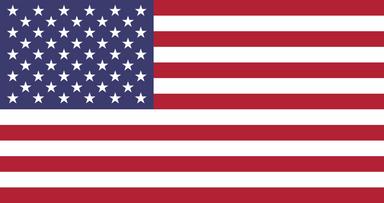


Written by Sabrina Fairley

On Tuesday, the Racial Equity Consortium (REC) hosted a vital Voter Registration Rally as part of REC Week, aiming to empower students and foster civic engagement. This event was designed to ensure that students were informed about their voter registration status and the voting process, highlighting the critical role of young voters in shaping the future.
The rally attracted a diverse group of attendees eager to learn about their voting rights and responsibilities. Information booths provided resources on how to register, check registration status, and understand the upcoming election process. Attendees had the opportunity to ask questions, clarify any uncertainties, and receive guidance from knowledgeable volunteers who were passionate about promoting voter participation.
One of the key messages of the event was the importance of civic engagement.
The REC emphasized that every vote counts and that young voters have the power to influence significant change within their communities. Engaging students in discussions about the importance of voting not only raised awareness but also encouraged them to take action.
The atmosphere was vibrant, filled with enthusiasm and a sense of purpose as students signed up to register or update their information. The rally also featured guest speakers who shared their personal stories about the impact of voting and the importance of making one’s voice heard.
By hosting the Voter Registration Rally, the Racial Equity Consortium successfully created a space where students felt empowered to participate in the democratic process. This event underscored the critical role that young voters play in shaping policies and advocating for issues that matter to them.
The success of the rally set a strong precedent for future civic engagement initiatives on campus, reinforcing the idea that informed and active participation is essential for a vibrant democracy. As students left the rally, they carried with them not only the knowledge of how to register but also a renewed commitment to make their voices heard at the polls.

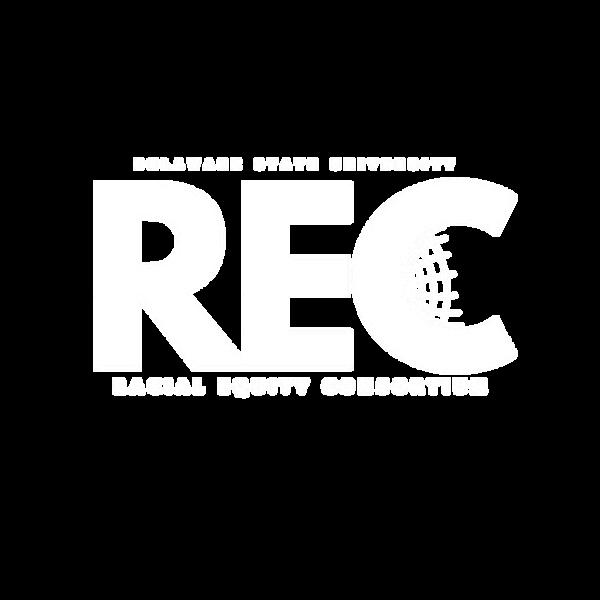
Written by Brandon Poplar

Dover, DE –
Financial literacy is a crucial tool for building wealth, and this was the central theme of the "Let’s Talk Money" event held this week at Delaware State University. The event, aimed at educating students on essential personal finance topics, featured a Jeopardystyle game in which three teams competed for a $300 grand prize. The interactive format made learning about personal finance fun and engaging while addressing the critical need for financial literacy in underserved communities.
The game covered topics such as budgeting, managing debt, and saving for the future—core areas that directly impact students’ ability to make informed financial decisions.

"We wanted to create an experience where students could learn about personal finance in a hands-on way," said Brandon Poplar, a Racial Equity Consortium Ambassador. "The game allowed them to apply financial concepts in real-world scenarios, helping to bridge the gap between knowledge and action."
Statistics show that financial literacy can have a profound impact on economic mobility. In Delaware, communities of color face significant financial challenges, with 48% of Black households lacking emergency savings compared to just 23% of white households. Studies indicate that improving financial literacy can help narrow the racial wealth gap by empowering individuals with the tools and knowledge to build long-term financial security.
The event’s objective was not only to educate but also to motivate students to take control of their financial futures. The participants left with actionable insights on how small financial decisions today like setting up an emergency fund or managing credit card debt can lead to significant improvements in financial stability down the line.

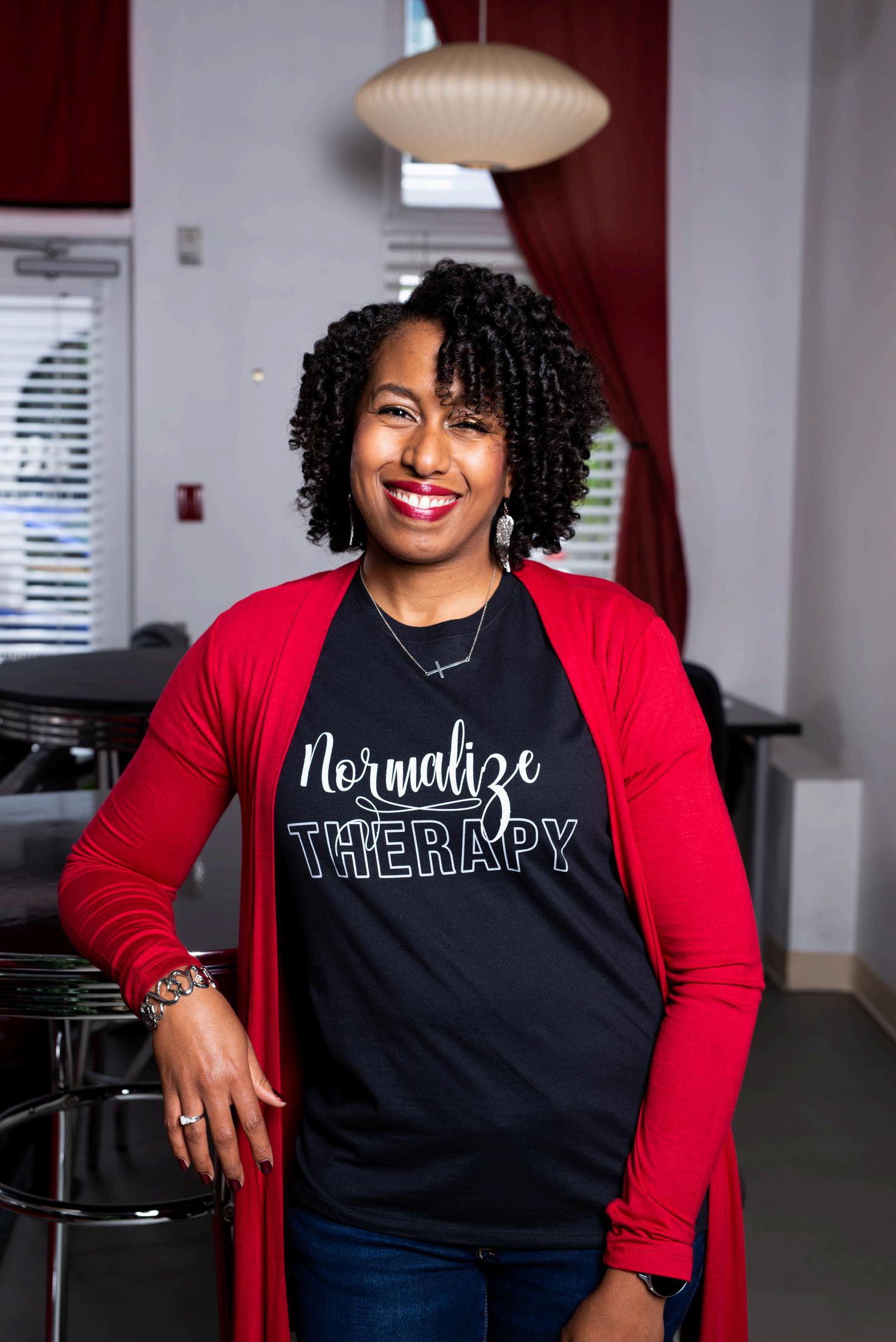


Written by Peter Kamanu
On Wednesday, the Racial Equity Consortium (REC) hosted the highly anticipated event "Reproductive Justice," which centered on the pressing challenges surrounding Black maternal health. This crucial discussion aimed to raise awareness about the disparities faced by Black women in healthcare, creating an open space for community dialogue on this critical issue.
The event featured insightful speakers and advocates who illuminated the systemic barriers that contribute to inequities in maternal health outcomes. Participants learned about the significant disparities in care, treatment, and outcomes for Black mothers compared to their counterparts. This conversation not only informed attendees but also emphasized the urgent need for advocacy and systemic change.
A particularly moving aspect of the event was the personal testimonies shared by Kaylynn Pride and Lindsay Griffin. Their heartfelt stories highlighted the real-life implications of these disparities, resonating deeply with everyone present. Kaylynn shared her own experiences navigating the healthcare system, shedding light on the challenges and biases she faced. Lindsay followed with her powerful narrative, emphasizing the importance of community support and the need for equitable healthcare access.
The emotional impact of their testimonies sparked meaningful conversations among attendees, fostering a sense of solidarity and commitment to addressing these issues. Participants left the event not only more informed but also inspired to advocate for change in their own communities.
"Reproductive Justice" served as a crucial platform for raising awareness and inspiring action, reminding everyone of the importance of prioritizing Black maternal health. The Racial Equity Consortium's commitment to addressing these disparities continues to be a vital part of the conversation around racial equity, ensuring that the voices of marginalized communities are heard and valued.
As the week progressed, the discussions from Wednesday reinforced the need for ongoing advocacy and education. Events like "Reproductive Justice" empower individuals to take a stand against injustice and work toward a more equitable healthcare system for all.


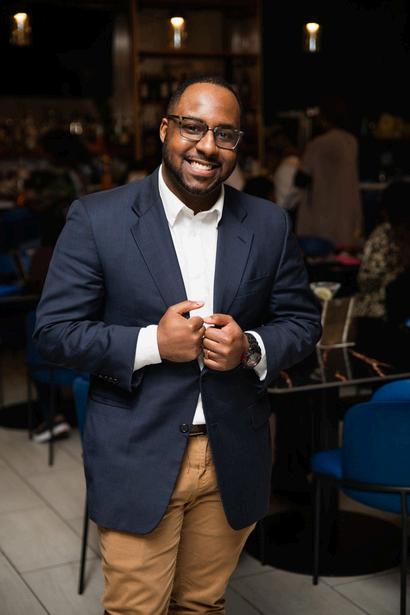

SEPT 19, 2024 BOA | 309 |7PM





Written by Brandon Poplar
Dover, DE – Students at Delaware State University had the unique opportunity to hear from successful minority entrepreneurs during the "Black to Business" panel this week. The event brought together business owners from various industries to share their personal journeys, discuss the challenges they’ve faced, and offer inspiration to students looking to carve out their own paths in the business world. The panel featured a diverse lineup, including the owner of a thriving photography business, the founder of a medical STEM kit company serving educational institutions, and the creator of 6AM RUN Marathon, a multi-million dollar consumer products company catering to runners. Each entrepreneur shared insights into overcoming imposter syndrome, staying motivated, and building successful businesses despite the odds.
"We wanted to showcase what successful minority entrepreneurs look like and give Delaware State University students a chance to see themselves in these stories," said Brandon Poplar, a Racial Equity Consortium Ambassador. "It’s about more than just business success it’s about showing the community what’s possible."
The panelists also highlighted the unique contributions of minorityowned businesses to the Delaware economy. Studies have shown that supporting minority entrepreneurs not only strengthens local communities but also drives job creation and innovation. According to the U.S. Census Bureau, minority-owned businesses are more likely to hire employees from their own communities, creating a positive ripple effect on local economies.
Despite these contributions, minority-owned businesses still face significant barriers, such as limited access to capital and resources. Supporting these businesses is not just about leveling the playing field it’s about fostering long-term economic growth and sustainability for all of Delaware.
By the end of the panel, students were left with valuable lessons on perseverance, community impact, and the importance of staying true to their passions, even when the path to success feels uncertain.

October is National Breast Cancer Awareness Month, a time dedicated to raising awareness about the importance of breast cancer screening and prevention. Initiated in 1985 as a week-long campaign by the American Cancer Society, this observance has grown into a monthlong initiative aimed at educating the public about the critical role of early detection in the fight against breast cancer. Breast cancer is a disease that affects thousands of individuals each year, and early detection significantly increases the chances of successful treatment. Statistics consistently show that finding breast cancer in its early stages offers the best chance of survival. This highlights the vital importance of regular screenings and mammograms.
Mammograms, in particular, are a key tool in detecting breast cancer early. These X-ray exams can identify tumors that may be too small to be felt during a physical examination. By scheduling a mammogram, individuals take a proactive step in managing their health and ensuring that any potential issues are addressed promptly. Now is the perfect time to schedule a mammogram if you haven’t already. Healthcare providers recommend that women begin regular mammogram screenings at age 40, or earlier based on personal or family medical histories. The message is clear: early detection saves lives.
In support of National Breast Cancer Awareness Month, communities are encouraged to participate in various awareness activities. This can include educational events, fundraising efforts, and initiatives to provide access to screenings for those in need. By working together, we can spread the word about the importance of early detection and prevention.
As we observe this important month, let us commit to prioritizing breast health and encourage those around us to do the same. Remember, taking charge of your health through regular screenings and awareness can make a significant difference in the fight against breast cancer.

October is Domestic Violence Awareness Month (DVAM), a dedicated time to raise awareness about the pervasive issue of domestic violence. This observance began in 1981 with the Day of Unity, aiming to connect organizations working to end domestic violence. By 1987, DVAM was officially recognized, coinciding with the establishment of the first toll-free hotline for individuals facing abuse.
Domestic violence affects millions across the United States, regardless of age, gender, race, or socioeconomic status. This month serves as a crucial opportunity to educate the public about the signs of domestic violence and the resources available for those in need.
Key statistics illustrate the urgent need for awareness: 1 in 4 women and 1 in 9 men experience severe intimate partner physical violence.
Nearly 20 people per minute are physically abused by an intimate partner in the U.S.
The National Domestic Violence Hotline offers vital support, available 24/7 for assistance and safety planning. If you or someone you know is experiencing domestic violence, please call 1-800-799-SAFE (7233) or text START to 88788 for help. As we observe Domestic Violence Awareness Month, let us remember that no one should suffer in silence. By raising awareness and promoting accessible resources, we can support survivors and work towards a future free from violence. Together, we can make a difference.

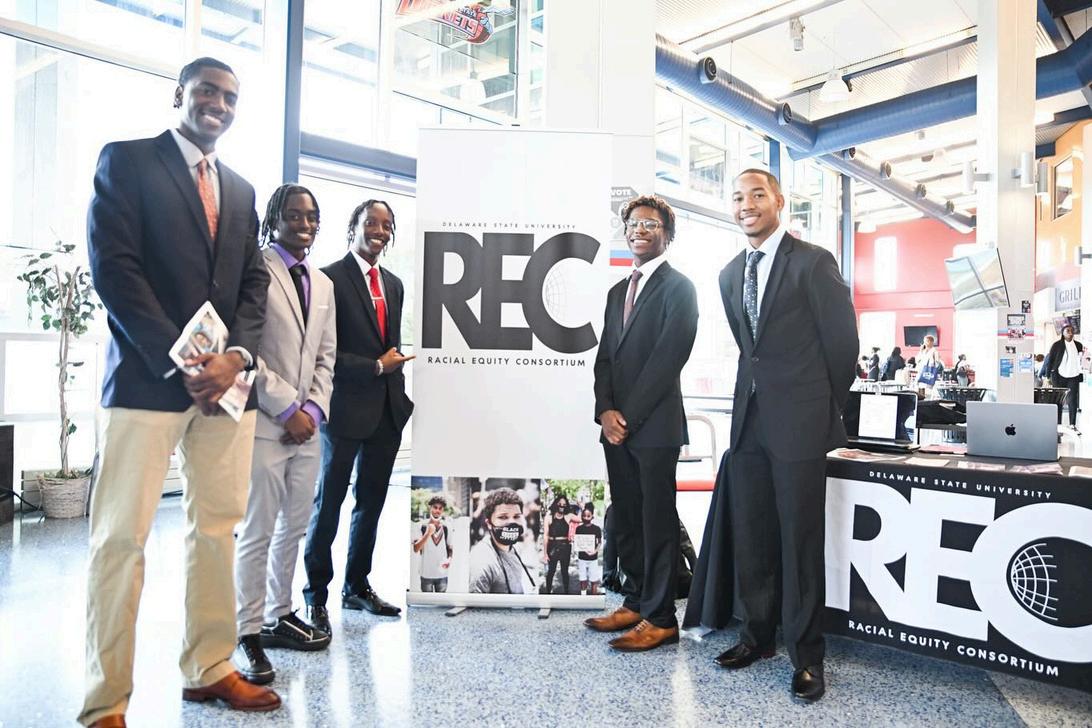




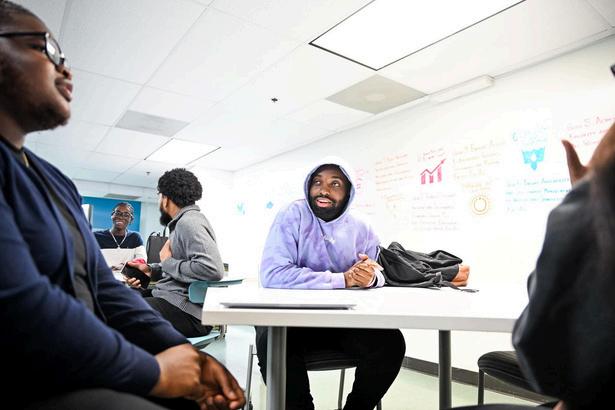



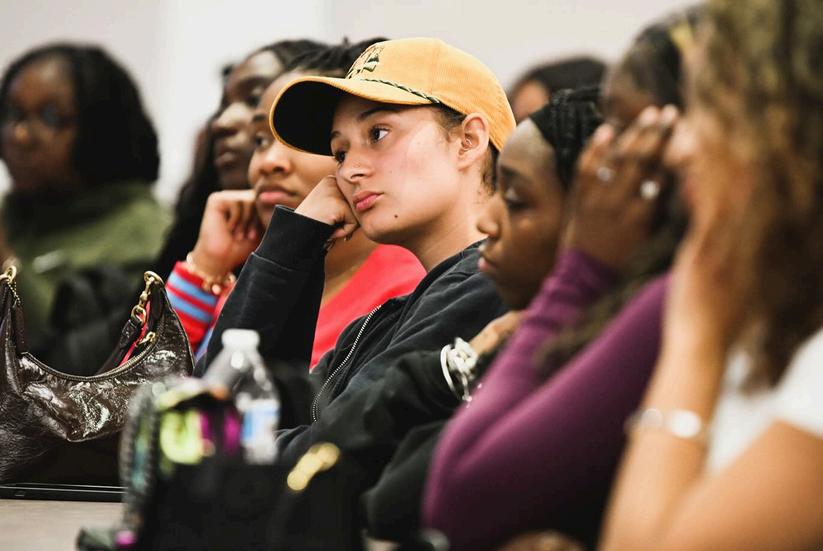
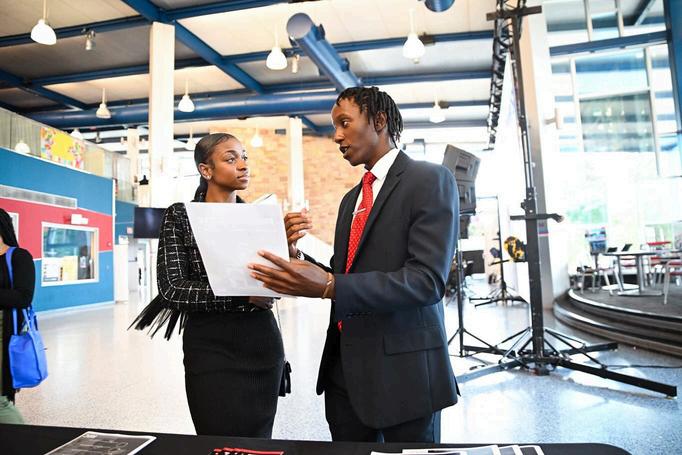
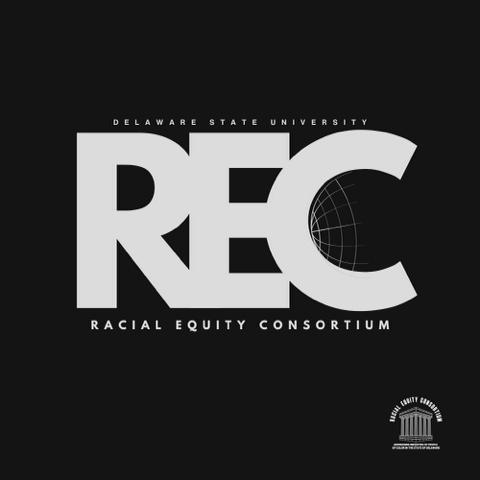
Michael Nicholls-Pierce: Contributor, Design and Marketing Editor
Asua Ofosu: Editor-In-Chief
Brandon Poplar: Contributor
Peter Kamanu: Contributor
Sabrina Fairley: Contributor